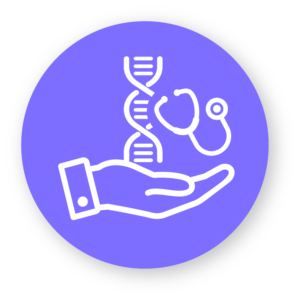Introduction TO THE MID-CAREER MENTORING PROGRAMME

We are proud to present next to the ENMC Early-Career Programme, the ENMC Mid-Career Mentoring Programme, which has been developed for people who wish to seek mentoring to become independent researchers and/or potential future leaders in the NMD field. These individuals will be at the stage in their careers where they are developing their own research plans and are establishing their research teams and collaborative networks worldwide.
Goal of the ENMC Mid-Career Mentoring Programme
With this programme, the ENMC aims to facilitate the emergence and support of the next generation of specialists and potential research leaders in the international NMD field. Opportunities will be provided to help these mid-career researchers to develop their full potential, in order to accelerate progress and innovation in NMD research, and facilitate effective communication and collaboration with multiple stakeholders in the current landscape (funders, media, industry, patient organisations, health care professionals, administrative and regulatory offices etc.). Finally, this programme may create opportunities for talented and ambitious mid-career NMD researchers and clinical specialists to become modern leaders.
As these are sensitive issues, the role of mentors and their personal characteristics are very important. Since innovation often arises from different perspectives, visions and voices working together, we will strive to increase awareness, in mentors and future leaders, about the importance of promoting diversity and equality, and the obstacles which need to be overcome [1,2]. In this programme, ENMC will strive for a balance in diversity of mentors and mentee candidates; we aim for a wide variety in geography, specialism, gender, age, race etc.
Learn more from the experiences of Dr N. Voet (mentee) and Prof. A. Aartsema-Rus with ENMC Mid-Career Mentoring Programme!
Video N. Voet
Video A. Aartsma-Rus
Short summary of the Mentoring Programme
- One mentee has 1-to-1 contact with 2-3 mentors, albeit in separate sessions, who have different and complementary backgrounds (i.e. academia vs business).
- Mentors and mentees are matched according to the type of skills that the mentee seeks to develop or improve [3]. It is not a training on scientific or clinical skills.
- Mentors and mentee meet 2-3 times per year by video call, phone, online and/or if possible face to face. The programme may last for 3 years.
- ENMC may help mentees to have access to the leadership trainings in business/administration which are available on the internet; today navigating within administrative and regulatory requirements is a key aspect to become skilled in for science leaders. Click here for access to online training modules.
- Through its patient associations, ENMC may invite mentees to join one or two national patient days during his/her mentorship, taking place in the country of residence. Talking to and being around people affected by a neuromuscular condition is important for mentees to be able to understand the patient’s (and families’) perspective and implement patient engagement in their work.
Call for Ambassadors
ENMC asks you to help create awareness about this important mid-career mentoring programme within your own local and international networks. Perhaps you are interested in a mentorship or you think of a perfect candidate mentee for this programme. Or you would like to express your interest of becoming an ENMC mentor yourself. Please, feel free to contact us at enmc@enmc.org for any questions or materials to share. The guidelines and the mentee and mentor forms can be found in the next website pages and can be downloaded here:
References
1 The Australian Academy of Sciences EMCR (early-mid career researcher) Forum https://www.science.org.au/supporting-science/early-and-mid-career-researchers-0/about-emcr-forum and the Australian Academy of Health and Medical Sciences https://aahms.org/mentorship-program/
2 Clance and Imes (Fall 1978). “The Impostor Phenomenon in High Achieving Women: Dynamics and Therapeutic Intervention”(PDF). Psychotherapy: Theory, Research & Practice. 15 (3): 241–247. doi:10.1037/h0086006.
3 https://mrc.ukri.org/skills-careers/interactive-career-framework/#?careerstage=4
